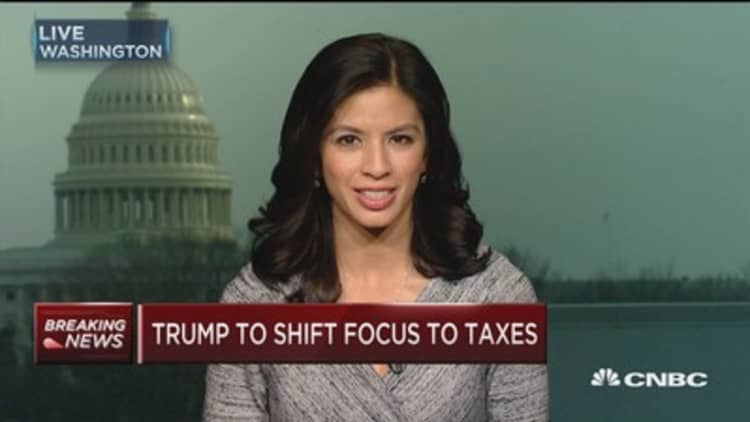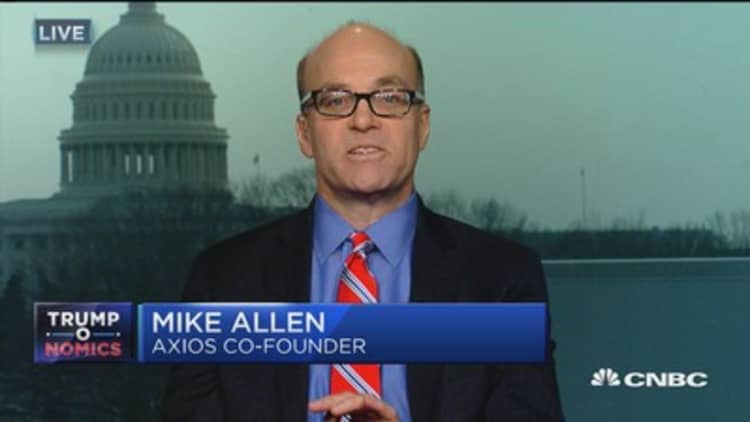
There are grave political risks for President Donald Trump now that the GOP health care bill is apparently dead. And its failure also creates a budget crunch that could make tax reform a whole lot harder to achieve.
Here's why: The Congressional Budget Office estimates that government revenue will total $41.3 trillion over the next decade under current law. The latest version of the Republican plan to repeal and replace the Affordable Care Act would have reduced that income by nearly $1 trillion, because it would have gotten rid of taxes connected to Obamacare.
Right now, there are no calls to offset that lost money by finding other revenue sources — a task that is always politically charged. Instead, the now-dead GOP plan offset the reduction in revenue by cutting spending elsewhere.
Therefore, passing the GOP health care scheme would have reduced the amount of revenue the government needed from $41.3 trillion to $40.3 trillion — which is a much lower bar for Washington to clear.
The key thing to know is that the rhetoric around tax reform is very different from health care. House Speaker Paul Ryan and Ways and Means Chairman Kevin Brady have both said they are committed to maintaining "revenue neutrality" — that is, they don't want changes in the tax code to result in a change in government revenue. That would have been a lot easier to do if they were trying to hit a revenue goal of $40 trillion instead of $41 trillion.

To put those numbers in perspective, simply lowering the corporate tax rate from 35 percent to 20 percent, as Ryan has proposed, would reduce government revenue by an estimated $2.75 trillion, according to the Tax Policy Center. Maintaining revenue neutrality means making up for that money through taxes somewhere else.
The real question is whether Trump and the rest of the Republican party care about revenue neutrality. Treasury Secretary Steven Mnuchin has emphasized that the administration intends to include in its assessment of any tax plan the expected benefits from stronger economic growth. That could make the math a lot easier.
The GOP may also be willing to finance tax cuts through an increase in the national debt.
White House spokesman Sean Spicer acknowledged Friday the budgetary conundrum that could arise if the health care vote fails. Still, during a briefing with reporters, he tried to separate potential for tax reform from the outcome of the health care vote.
"I don't think you tie any of these together," he said. "There's a huge appetite for tax reform."

